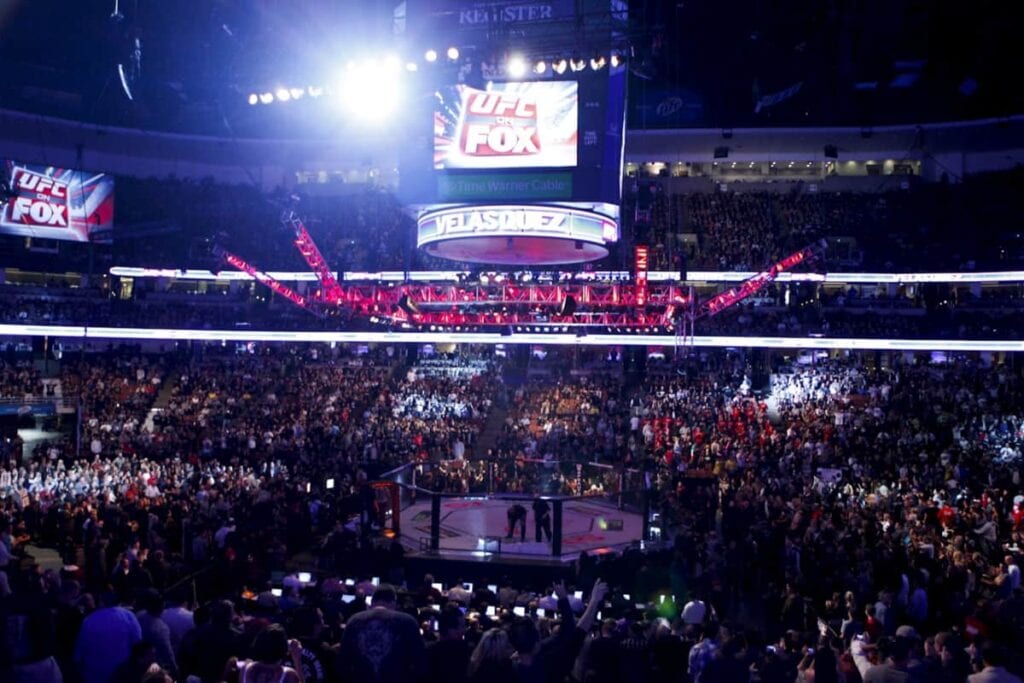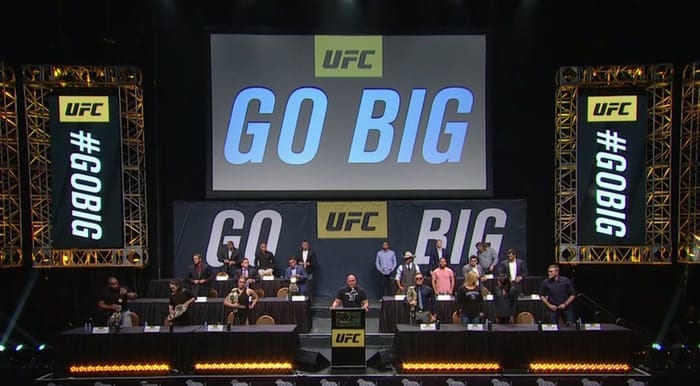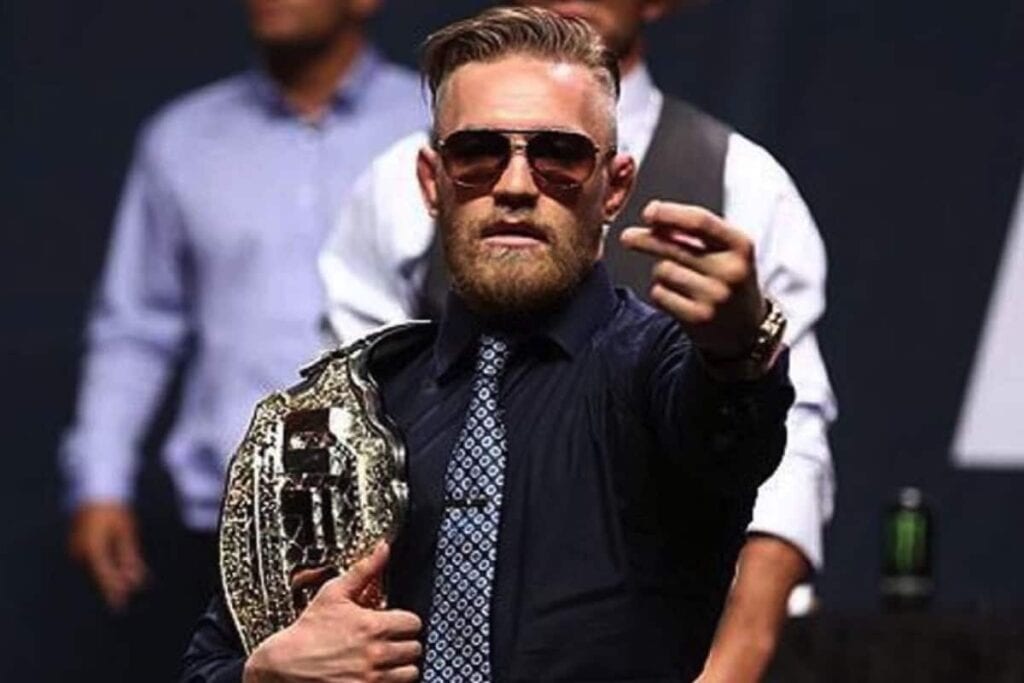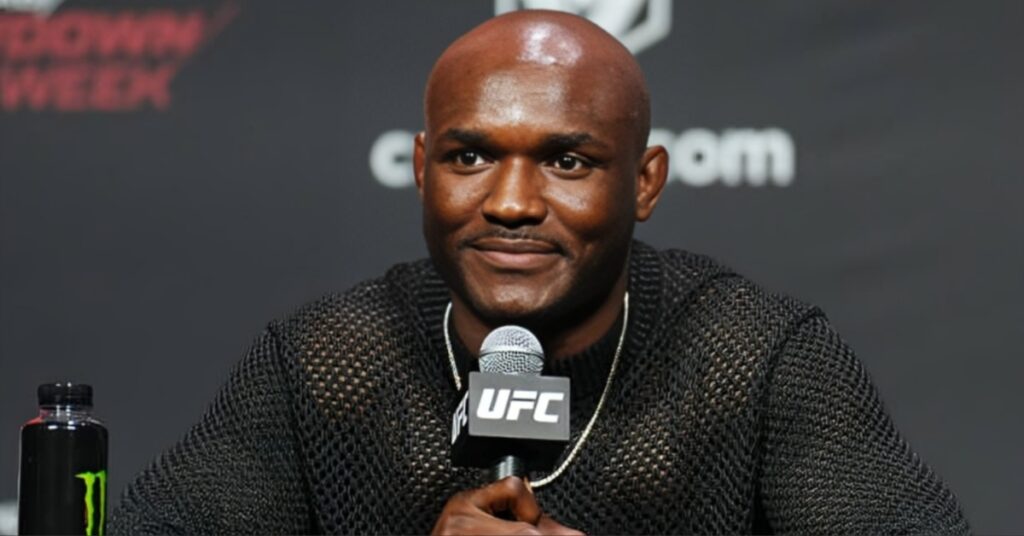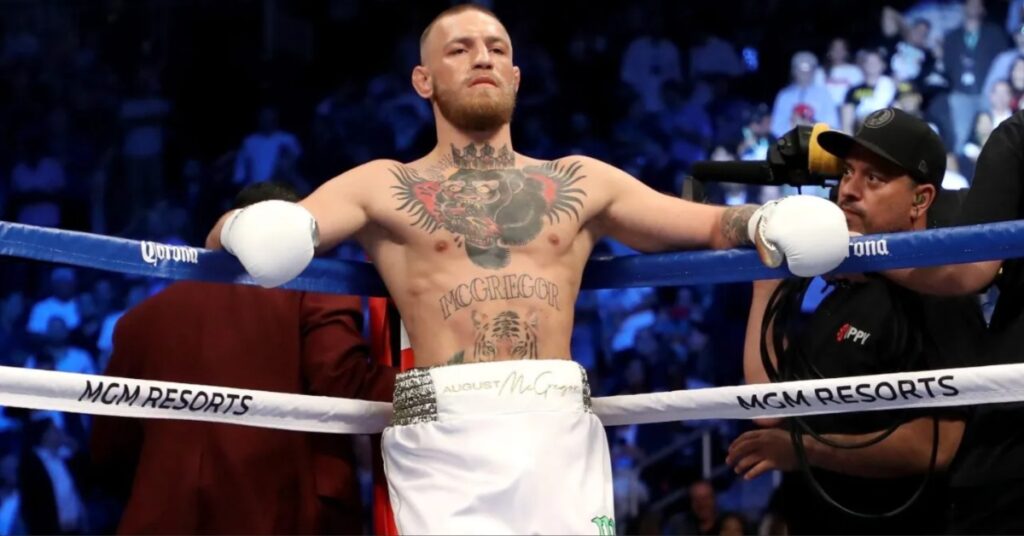Four Major Changes Coming From The UFC Sale
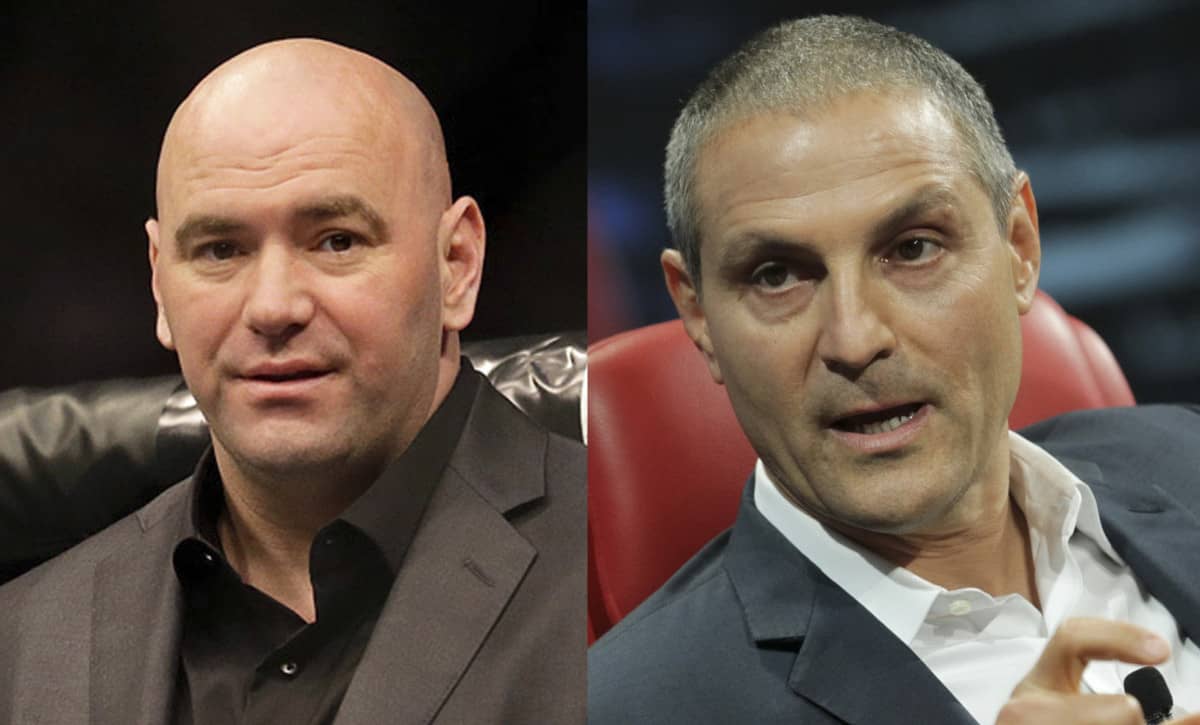
With the announced acquisition of the Ultimate Fighting Championship by the William Morris Endeavour – International Management Group, WME-IMG, speculation has run rampant. The larger than life personality to meet Dana White at the helm of the UFC will be none other than Ari Emanuel, the man often touted as the most powerful agent in Hollywood, alongside his longtime partner Patrick Whitesell. The pair have long, storied backgrounds in media representation on all fronts and larger than life personalities to match, specifically Emanuel.
Given their insightful reputation surrounding media properties, experts were surprised by the UFC’s sale price not only for the amount but for the fact that it was agreed upon by Emanuel and Whitesell, which alone speaks to the validity of the UFC’s deemed worth.
With Dana White’s experience and strong visionary qualities that have helped the UFC reach the heights in which it resides today, fans are curious to see how the addition of Emanuel and Whitesell will shape the organization going forward. Visionaries in their own right, the WME-IMG pair have connected the dots on the biggest media properties for years in terms of music, movies and sports- even having a hand in the sale of the UFC’s TV rights prior to the purchase.
In this article, we take a look at four distinct ways the UFC is about change following the sale. Given the hefty purchase price, the resources available by the new owners and the potential for more funding from it’s new equity partners like Silver Lake, the UFC is about to scale drastically and we outline exactly how they’ll do it.
The Cultivation of Super Stars
As the greatest analytical minds of the sports have stated time and time again, the UFC is a star-driven league. 2015’s revenue figures are evidence of the validity of this theory making super stars arguably the most valuable commodity in the sport.
If one were to simplify the ingredients list that goes into creating a superstar, it may look something like this: Talent, a viral personality and good timing. Those are the shared elements between all superstars the MMA world has ever seen, without inspecting each individual with a microscope.
The UFC has the best talent in the sport, by far, and when one thinks back to a time where that was in question, they have worked towards acquiring that talent, as evidence in their purchases of Pride, Strikeforce and the WEC. The point is, talent is not in short supply in the UFC by any means.
Now, working backwards, we can see that timing, although important, is fairly flexible in the fight world. A perfect example of this is Conor McGregor’s rise to fame in Ireland. Although he built his name fighting in smaller European shows, capturing championships and electrifying crowds, his true surge in popularity in his home country can be traced back to a ‘big bang’ like event in Dublin – that night, Conor McGregor stopped Diego Brandao via first round strikes in front of his hometown crowd at the O2 arena. Historically, headlining a show for UFC for your third fight is rare, but the powers that be recognized an opportunity to build the Irishman’s star power in his home market, and capitalized on his personality and fighting style by expediting his UFC career, rather than waiting to have him headline a show.
The next ingredient is the right personality. Although fighters like Rousey and McGregor have shown the blue print for what pulls in fans, they are still in short supply. Having built an empire on recognizing what appeals to fans from a celebrity aspect, fans can be certain that WME-IMG will being their ‘A’ game when it comes to managing fighters’ image. The image management they are likely to employ for their new found rough and tumble stable of clients will most-likely gravitate around celebrity appearances, more exposure on the right level and efforts to raise awareness around specific fighters – in layman’s terms, they’ll be the ones creating the buzz for the athletes, rather than the fighters doing it on their own.
Think Stephen Thompson doing a cameo on ‘Pretty Little Liars’. Okay, maybe Anthony Pettis on the Wheaties box is a better example, but you get the picture.
More Distribution
The merger between WME and IMG is attributed to many things, but one of the most important aspects was a shared view point between Patrick Whitesell and Emanuel regarding the amount of distribution on the verge of hitting the media world, as Whitesell outlined in a 2013 interview with Fortune Magazine. After the two names linked up, they embarked on a mission to grow the amount of content they owned as rapidly and as effectively as their business would allow, without sacrificing the integrity of their now joined companies. The amount of unique content the UFC produces on a regular basis makes the sale essentially a gold mine in the eyes of a sports media property distributor, especially considering the relatively small amount of distribution the UFC utilizes currently.
When the word ‘small’ is used in the above description, it’s important to remember that the term is relative to the amount of distribution available for sports media. Yes, the UFC owns fight pass, has a major deal with FOX and has a major presence on Youtube in terms of sports leagues, but there is almost an infinite amount of room to grow.
Under the WME-IMG banner expect a rise in the amount of distribution channels the UFC uses, most notably once their current deal with FOX runs out. After that, look for a shared content model through multiple media partners rather than the current, exclusive one now in place – similar to that of the NFL or NBA. ESPN’s desire to get into the MMA game has been well noted with their increased coverage over the last few years and NBC’s initial deal with the UFC has proven their long time interest as well, that, paired with the consistent praise of FOX on account of their partnership and you have a recipe for a content split.
Whether they choose to separate the distribution of live shows, the types of shows or original content among networks remains to be seen, but don’t be surprised if you see The Ultimate Fighter wind up on network TV as a result of the purchase.
As you may have guessed, the increase in distribution means an increased need for content, meaning it’s time to ramp up the amount of live shows.

More Content
In a 2010 Interview with Zeitgeist Minds, Emanuel expressed his sentiment on the changing of “what he defined as content” from 15 years prior, as evidence to the way we view media as consumers is constantly evolving. The high sale price of the UFC was a surprise to many, but not to those that recognize the evolution of sports media content in the last decade, especially when one takes the organization’s dedication to great fights and solid production in to account.
The UFC has done a good job of regaining the quality in it’s fights within the last year after being heavily criticized for ‘watering-down’ fight cards to increase the amount of shows it was doing to fulfill live media obligations for FOX. The fact that they have started to get things adjusted in that department comes at a good time because, as we just outlined, the company is on the verge of an increase in distribution.
With Fight Pass, the amount of quality, original content has increased and allowed for the company to test the waters on a few different creative fronts, but fans without a subscription are generally more interested in one thing. Actual fights.
The UFC as a pay per view staple will always exist, and it can be assumed that this is where the numbered, bigger events will remain, but smaller shows are where the speculation begins. Over the last few years, we have seen UFC on Fuel and UFC on FX come and go, while shows like UFC on FOX, UFC Fight Nights, and Fight Pass Fight Nights stick around. What this tells us is that tailoring shows for specific networks and distribution channels is inexact science, with some models working out and others fading away, but the UFC is actively experimenting.
Expect those experiments to continue once distribution ramps up, especially in the form of lower level Fight Night type events, most likely to feed into other, newer media partners that want to break the live UFC event barrier.
Increased Profits and Fighter Pay
The increase in star power, content distribution all adds up to an increase in revenue. That increase in revenue will inevitably lead to higher pay outs to fighters as their worth increases both as athletes, and as personalities.
The UFC as a mainstream entity is a new concept, as is acceptance by more than just a niche audience. Under the new banner, it can be safe to assume acceptance by the general public will increase and doubts once held about the sport by less familiar fans will gradually disappear; these side effects are a result of the imminent increase in exposure for the UFC. An additional side effect is one related to younger fans, who have only started to get involved in the sport actively in the last few years. Through youth training programs and increased family friendly fan experience events, the UFC has gradually grown the amount of youth involvement in the organization, something present in all other sports but lacking from MMA on a big scale for years.
When fans get involved with the sport from a younger age, they develop with the sport their entire lives, eventually getting their children involved as fans as well. This perpetual cycle are what have made all mainstream sports – basketball, football, baseball, etc. – consistent cash cows for years. The same can be expected from the UFC on account of it’s unique qualities as an athletic event (fighter personalities, short fight times, etc.), despite it being marketed mainly as a blood sport through it’s first act in the US.
That involvement and continuous fan base is what has led the MLB, NBA and NFL to 100+ million dollar contracts for it’s athletes and it is a fairly safe prediction that the same will eventually happen in MMA. The timeline on this change is certainly the biggest area of speculation as it is not a matter of whether or not it will happen, but rather a matter of when.


